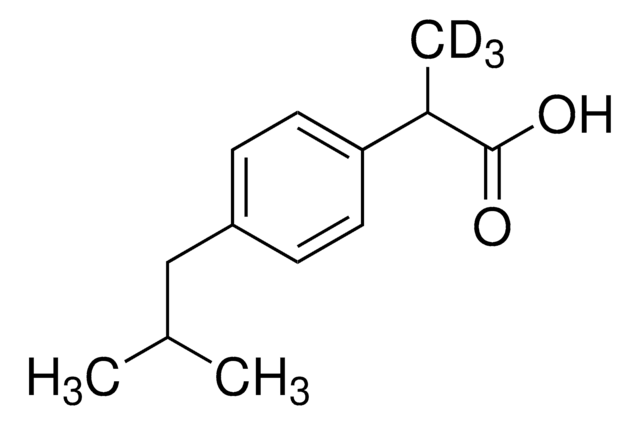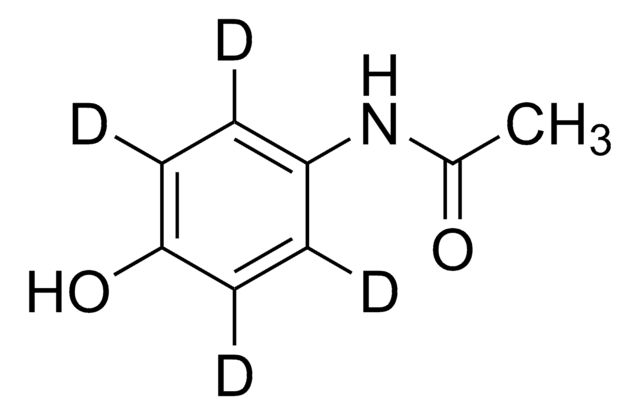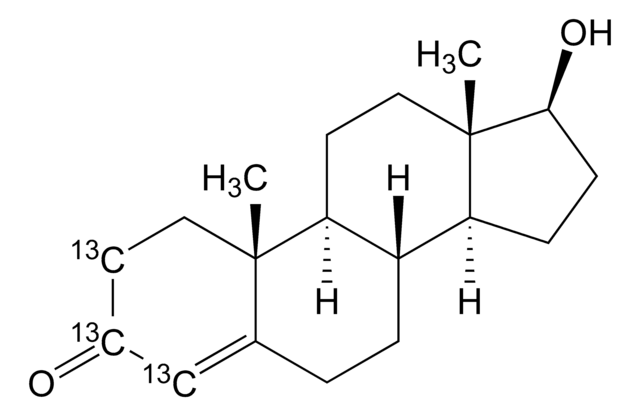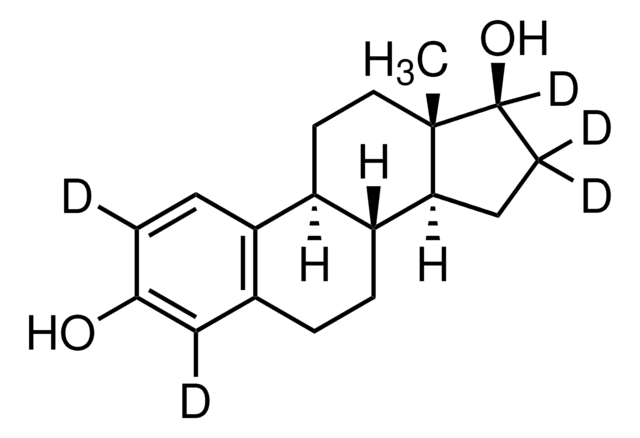55264
Ibuprofen-d3
analytical standard
Synonym(s):
α-Methyl-d3-4-(isobutyl)phenylacetic acid
About This Item
Recommended Products
grade
analytical standard
Quality Level
isotopic purity
95 atom % D
Assay
≥98.0% (HPLC)
shelf life
limited shelf life, expiry date on the label
technique(s)
HPLC: suitable
gas chromatography (GC): suitable
application(s)
environmental
forensics and toxicology
pharmaceutical (small molecule)
format
neat
mass shift
M+3
SMILES string
[2H]C([2H])([2H])C(C(O)=O)c1ccc(CC(C)C)cc1
InChI
1S/C13H18O2/c1-9(2)8-11-4-6-12(7-5-11)10(3)13(14)15/h4-7,9-10H,8H2,1-3H3,(H,14,15)/i3D3
InChI key
HEFNNWSXXWATRW-HPRDVNIFSA-N
General description
Application
Packaging
Application
replacement part
Signal Word
Warning
Hazard Statements
Precautionary Statements
Hazard Classifications
Acute Tox. 4 Oral - Eye Irrit. 2 - STOT SE 3
Target Organs
Respiratory system
Storage Class Code
11 - Combustible Solids
WGK
WGK 1
Flash Point(F)
Not applicable
Flash Point(C)
Not applicable
Personal Protective Equipment
Choose from one of the most recent versions:
Certificates of Analysis (COA)
Don't see the Right Version?
If you require a particular version, you can look up a specific certificate by the Lot or Batch number.
Already Own This Product?
Find documentation for the products that you have recently purchased in the Document Library.
Customers Also Viewed
Chromatograms
application for HPLCsuitable for GCOur team of scientists has experience in all areas of research including Life Science, Material Science, Chemical Synthesis, Chromatography, Analytical and many others.
Contact Technical Service










